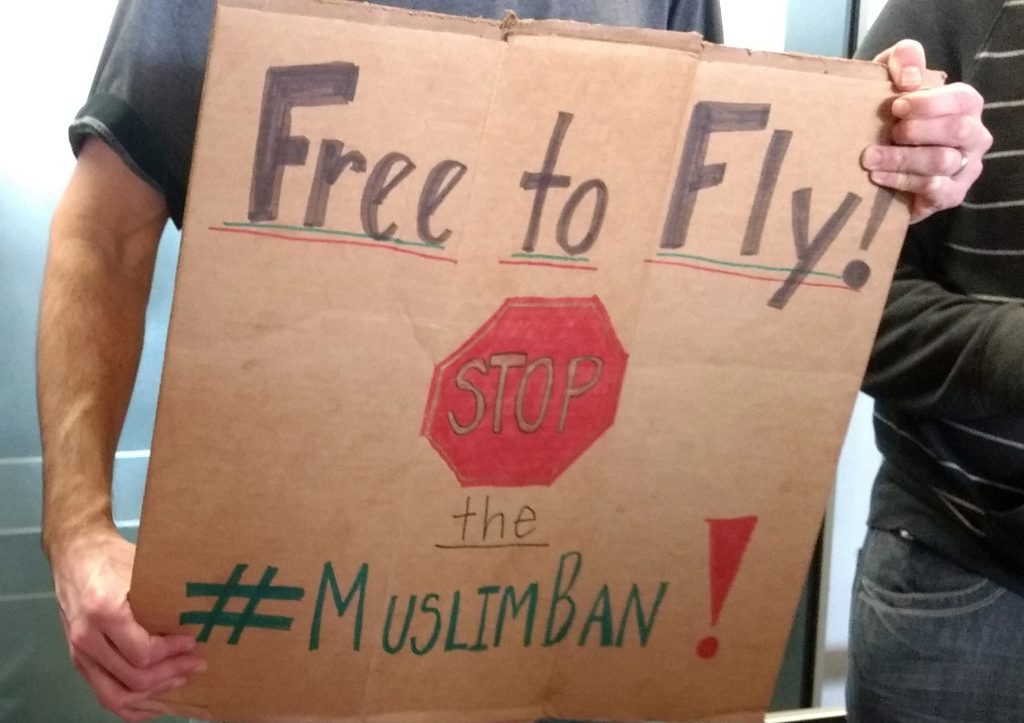Imagine that you’re a U.S. citizen. You were born in the USA. You’ve never been a citizen of any other country, and you have no birthright to any other citizenship.
Now imagine that you are abroad long enough that your passport begins to approach its expiration date. Naturally, you apply to renew it, leaving plenty of time. You have to surrender your old passport with the renewal application, but of course you expect to get your new passport shortly.
Now try to imagine that the State Department puts your passport renewal application into limbo — for almost three years (and still counting). Your application for a new passport is neither granted nor denied, so there is no explicit “decision” to appeal administratively or challenge in court.
Without a passport, you are trapped in whatever country you happened to be in when you applied to renew your passport. No other country is likely to let you in without a passport, nor will any airline let you on an international flight without a passport — not even to return to the USA.
If your visa or permission to remain in that country as a foreigner expires, or if you get into any situation in which you are you are required to show your passport, you are liable to be arrested and thrown into detention or deportation proceedings.
You keep going back to the U.S. Consulate to find out what is happening with your passport application. They tell you they don’t know. They suggest that you go to the end of the line by withdrawing your still-pending application, and starting over — putting your new application at the back of the years-long queue.
Eventually they get tired of putting you off, and order you — a native born sole U.S. citizen — to leave the U.S. Consulate, and not to darken their door again under pain of arrest. Arrest for what violation of what country’s laws, they don’t say.
You try to find a lawyer to hire, but this is outside the expertise or experience of any U.S. lawyer, and none wants to take on your case.
Is this a realistic scenario? Yes.
We’ve heard from more than one person in this situation — and not just the Yemeni-Americans we wrote about a few years ago.
Meet Daniel Bruno, man without a passport:
I was born in Manhattan…. I have a birth certificate…
In May of 2014, I walked into the US Embassy in Buenos Aires with my perfectly valid US passport that was due to expire in six months. I filled out the renewal forms, paid the fees, was interviewed and dismissed by Vice Consul Creaghe. I never had a US passport again because they would not renew it.There is, of course, much more to this story,… but the bottom line is that according to them, Americans have no right to a passport, no right to a nationality document and no right to return to the US… and I know this is illegal.
BTW, let me mention that I’m not wanted for a crime, back taxes, child support, etc….
I am actively seeking constitutional and civil rights lawyers who want to help me defend the rights of all of us.
We’ve met Daniel Bruno in person, and all of the documentation we’ve seen — both from him and from the State Department in response to a Privacy Act and FOIA request we helped him file — supports his account of his bureaucratic ordeal. (The State Department has provided only a partial response, which does not yet include any of the records from the consulate in Buenos Aires.) Is Mr. Bruno now an expatriate? Or has he been effectively exiled by the USA?
We aren’t able to represent Mr. Bruno. But if you are, or you know a lawyer who is, we’ll be happy to put you in touch.
